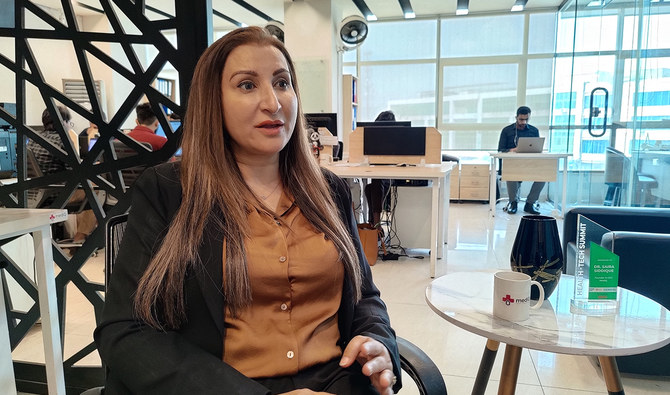ISLAMABAD: Pakistani health care tech startup MedIQ is expanding its operations in Gulf countries, including Saudi Arabia, through joint ventures (JVs) with hospitals and companies as it seeks to capitalize on the Kingdom’s potential to digitize its health care services under the Saudi Vision 2030 plan, the startup’s founder said on Monday.
Saudi Arabia is consolidating its economy on modern lines under Vision 2030 to cut its reliance on oil and is aimed at developing public service sectors in the Kingdom such as health, education, infrastructure, recreation, and tourism. The Kingdom aims to restructure the health sector and is committed to investing heavily in health technology sector to meet these ambitious goals. Much of the Kingdom’s SR180 billion ($50.3 billion) 2023 health care budget is directed toward digital health initiatives.
Dr. Saira Siddiqui, a doctor who holds a PhD in Health Economics from the University of Yorkshire, started MedIQ around three-and-a-half years ago in Pakistan’s capital Islamabad. The startup aims to redefine health care through a digitally enabled hybrid ecosystem and is currently operating in Pakistan, Saudi Arabia, the United Arab Emirates (UAE), and Canada.
“The solutions which we have developed in Pakistan, they are being used more in Saudi Arabia as compared to here because Pakistan still has to go a long way in digitization of health care services,” Siddiqui told Arab News. She said MedIQ is striving to make health care more patient-friendly, integrated and trying to ensure that all stakeholders in the system provide health care services efficiently through technology.
Siddiqui said one of the key areas of focus of the Saudi Vision 2030 was enhancing health care services through the use of technology, adding that the SR180 billion Saudi health budget for 2023 focuses on digitization of hospital health care records, provision of remote patient monitoring, and virtual care.
“MedIQ is actually developing software which are connecting the hardware, the information, the patient, and the human resource providing health care services together,” Siddiqui said.
The Pakistani startup founder said to enhance its penetration in the Kingdom’s market, MedIQ has collaborated with large Saudi groups and different holding companies by entering into joint ventures with them for different products.
“We are working with Almana Hospital and then we are also working on a project with Elm, which is their ministry,” Siddiqui shared. She added that MedIQ was also collaborating with the prominent Dr. Sulaiman Al Habib Hospital.
Siddiqui said her startup is currently working with one mid-tier hospital chain and one top-tier hospital chain, in addition to government hospitals in Saudi Arabia.
She said MedIQ was also very active in the UAE and was prioritizing technology-driven wellness and lifestyle modification products, leveraging virtual and augmented reality to induce behavioral changes.
“Now from UAE and KSA, we plan to expand to the rest of the Gulf Cooperation Council (GCC) countries,” she added.
Siddiqui said the response to her health care technology software was “phenomenal” as it secured over 2.5 million customers globally during the last three years.
Technology adoption in Pakistan is low but the UAE and Saudi Arabia are spending heavily on health care technologies, Siddiqui said.
”So, we see a better growth, a more favorable response from the GCC market,” she explained.
Siddiqui said women were the bulk users of her products as it is usually hard for them to visit hospitals without male companions in Pakistan and the Middle East. “According to the figures which we have, about 74 percent of our users are women and [the] women having children or dependents such as older parents,” she added.












